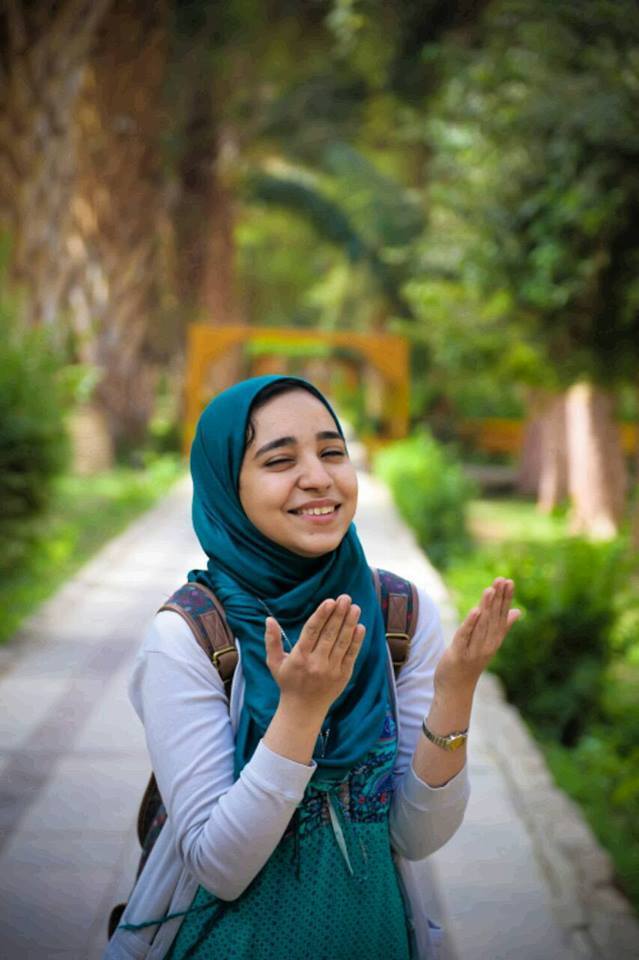Esraa El-Taweel, the 23- year-old photojournalist who disappeared 1 June and appeared in Al-Qanater Women’s prison two weeks later, has released her second letter from jail, shared online by the ‘Where is Esraa El-Taweel’ campaign.
In her letter, El-Taweel called for her “immediate release with the continuance of the prosecutor’s investigations”, and recorded her daily difficulties inside prison.
El-Taweel has been a famous case among a wave of disappearances that has seen numerous individuals, with connections to revolutionary or Islamist politics, taken illegally by security forces. The young photographer has spoken of being blindfolded and interrogated for 15 days during the period she was forcibly disappeared. Her lawyers understand El-Taweel will face charges of “belonging to the outlawed Muslim Brotherhood group and spreading false news through her social media account”.
In an emotional letter, El-Taweel writes: “Although almost 2 months have passed since I was kidnapped, I still cannot absorb what is happening. Till this moment I wake up panicking and asking ‘Where am I?’ I cry and say ‘I just want to go back home’.” She noted that she is allowed weekly family visits lasting half an hour and describes prison as the “graveyard of the living dead”, where “there is no life here”.
A Ministry of Interior spokesperson previously denied that the police forcibly takes individuals in this manner, also telling Daily News Egypt that Egypt’s police forces are currently not targeting young people, regardless of their political stances and positions, a claim that activists refute.
Egypt’s penal code itself prohibits detaining individuals for longer than 24 hours without raising charges, while a judge is allowed to prolong the detention only after four days of the arrest.
El-Taweel writes that there is segregation between political prisoners and criminal prisoners and the former are treated more severely. Family visits are observed to monitor conversations. She talks of a highly hot and airless cell that is infested by insects, cockroaches, ants, and worms, owing to the food. The criminal prisoners also present problematic behaviour, and El-Taweel notes she has been physically harassed by her fellow inmates.
El-Taweel continues to describe the daily difficulties of life in prison, noting highly unhygienic water that “causes skin infections and smells like sewerage”, and the expensive and difficult purchase of mineral water from prison authorities. She also notes that many things are forbidden, including books, radio, photographs her sister printed for her and “even ‘Mickey’ comic books”.
During the second anniversary of the 25 January Revolution in 2014, El-Taweel was struck by a bullet hitting her leg and spine while taking photos during a protest. She was bedridden for five months and used a wheelchair for six months. Through physiotherapy she had made some progress and began to use a crutch, according to family members.
El-Taweel’s sister, Duaa, previously said: “If my sister stays for one more month [in detention] without physiotherapy she will be paralysed again.”
In El-Taweel’s most recent letter, she writes that the prison doctor “Mahmoud Ashour” diagnosed that she has a permanent disability and refused to provide physiotherapy, meaning that she now cannot walk.
On 1 June, El-Taweel and two friends, Omar Ali and Sohaib Saad Al-Haddad, were disappeared while they were having dinner in Maadi. It has been reported that Ali was taken to Al-Aqrab prison and Al-Haddad is at Tora prison.
Sohaib is also one of five students standing trial in the Al Jazeera case, charged with conspiring with the Qatari media network’s journalists. The defendants maintain they have no relationships with anyone from the outlet.
Al-Haddad was released earlier this year as the case began to fall apart. However, following his disappearance, Al-Haddad appeared alongside a number of disappeared individuals in a video published by the Ministry of Defence in July. The video claims to show the individuals confessing to being members of a terrorist network and claiming responsibility for attacks on state facilities and personnel.
A ministry press release states that the operation was “part of a strategic plan by Egypt’s security services to detect terrorist organisations that aim to destabilise the country, the economy and national security”.
The release says the cell is run from Turkey by the “terrorist Muslim Brotherhood and organisations loyal to it, and members received training in Syria” on assassinations, kidnappings and the manufacture of explosive charges. The video names the leader abroad as a 23-year-old man called Abdullah Nour Eddin Ibrahim Moussa.
However, family members and activists claimed that the testimonies were produced under duress and that the individuals were abused during their period of disappearance.




